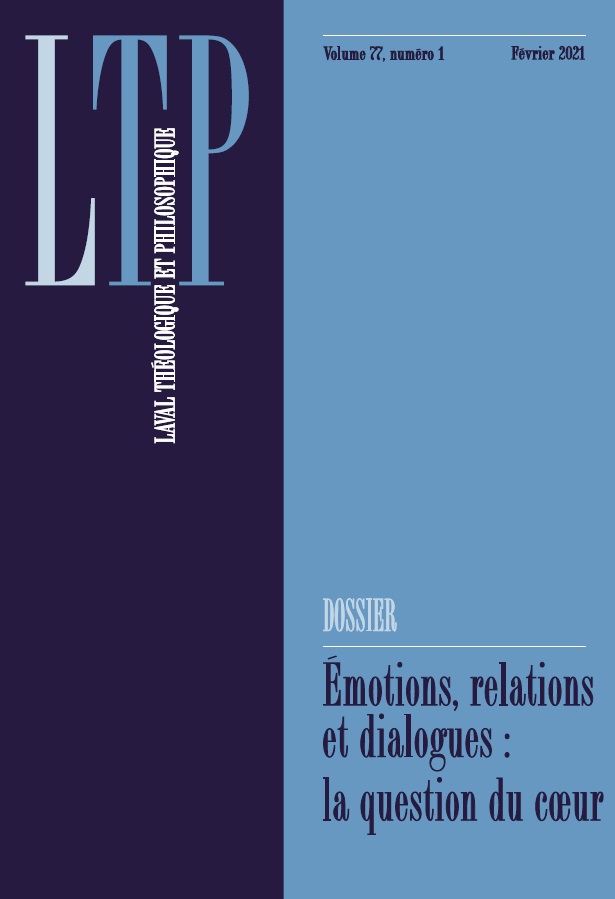Analyse philosophique du dialogue existentiel et du respect de la différence à partir des réflexions de Pierre Claverie et Christian de Chergé
Abstract
This article builds on the thought of two authors, Pierre Claverie and Christian de Chergé, who belong to the spiritual tradition, and who dedicated their lives to existential dialogue between Christians and Muslims. The author sheds light on keypoints in the existential dialogue. While dialogue has very often been conceived of in light of an ethics of discussion, where the goal, acknowledged or not, is to convince the other by the use of intellectual arguments, here it rather means a communicative dialogue whose goal is to meet the other and welcome her differences. Such an existential dialogue requires an openness to the other and an attitude of receptiveness. However, this does not mean that one renounces one's identity and convictions; one can maintain these insofar as the final aim is not to impose them on the other. The author puts forward the idea of non-constraining convictions. The dialogue also involves an attention to the other in her body language and gestures. From an epistemological point of view, it involves a judgement that affirms the humanity of the other. It necessitates an ethical imperative, the work of imagination and knowledge to encounter others and to respect them, in their essential humanity and otherness. Furthermore, a person's conditioning, their narrative history, and social, cultural, and political environments are also key elements that can nurture or damage the dialogue.

